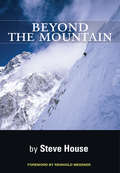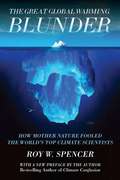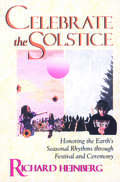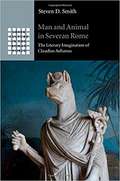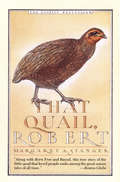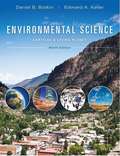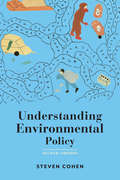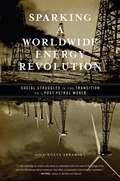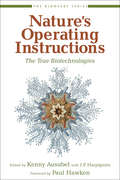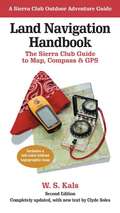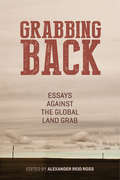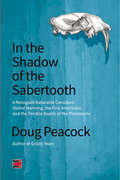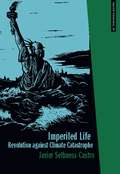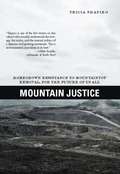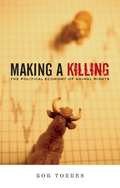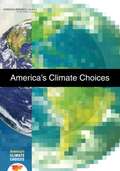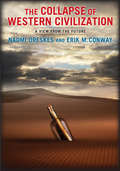- Table View
- List View
Beyond the Mountain
by Reinhold Messner Steve HouseWhat does it take to be one of the world's best high-altitude mountain climbers? A lot of fundraising; traveling in some of the world's most dangerous countries; enduring cold bivouacs, searing lungs, and a cloudy mind when you can least afford one. It means learning the hard lessons the mountains teach.Steve House built his reputation on ascents throughout the Alps, Canada, Alaska, the Karakoram and the Himalaya that have expanded possibilities of style, speed, and difficulty. In 2005 Steve and alpinist Vince Anderson pioneered a direct new route on the Rupal Face of 26,600-foot Nanga Parbat, which had never before been climbed in alpine style. It was the third ascent of the face and the achievement earned Steveand Vince the first Piolet d"or (Golden Ice Axe) awarded to North Americans.Steve is an accomplished and spellbinding storyteller in the tradition of Maurice Herzog and Lionel Terray. Beyond the Mountain is a gripping read destined to be a mountain classic. And it
The Great Global Warming Blunder
by Roy W SpencerThe Great Global Warming Blunder unveils new evidence from major scientific findings that explode the conventional wisdom on climate change and reshape the global warming debate as we know it. Roy W. Spencer, a former senior NASA climatologist, reveals how climate researchers have mistaken cause and effect when analyzing cloud behavior and have been duped by Mother Nature into believing the Earth's climate system is far more sensitive to human activities and carbon dioxide than it really is.In fact, Spencer presents astonishing new evidence that recent warming is not the fault of humans, but the result of chaotic, internal natural cycles that have been causing periods of warming and cooling for millennia. More carbon dioxide in the atmosphere is not necessarily to be feared; The Great Global Warming Blunder explains that burning of fossil fuels may actually be beneficial for life on Earth.As group-think behavior and misguided global warming policy proposals threaten the lives of millions of the world's poorest, most vulnerable citizens, The Great Global Warming Blunder is a scintillating exposé and much-needed call for debate.
How the EPA's Green Tyranny is Stifling America
by Rich TrzupekThe relationship between environmental regulation and economic growth has gone from dysfunctional to disastrous under the leadership of Barack Obama's USEPA Administrator, Lisa Jackson. Jackson's EPA has assumed broad new powers and promulgated sweeping new regulations unlike anything that America has seen since the Clean Air Act and Clean Water Act were signed into law forty years ago. While much of the public has focused on the EPA's plans to regulate greenhouse gas emissions, the Agency's power grab extends into far more areas of society and the economy than fossil fuel use alone.Rich Trzupek explains why Obama's EPA is different and more dangerous, than any other since the Agency was created forty years ago. From the oceans to consumer products, from the manufacturing line to the showroom floor, the tentacles of this EPA are silently creeping into more and more parts of our lives as Lisa Jackson smilingly assures the nation that everything the EPA does generates revenue rather than costing industry billions of dollars and America hundreds of thousands of jobs.
Celebrate the Solstice
by Richard HeinbergThis book is an accessible, engaging tool to help people enrich their lives through the observance of ancient, astronomically determined Earth festivals. It assists us to recover an experience that had deep meaning for the ancients and that is now increasingly relevant to a world facing environmental challlenges. Seasonal festivals are not meant to be cultural relics. They are joyous, fun, mischievous, profound, life-affirming events that connect us deeply with the Earth, the heavens, and the wellspring of being within us. This book encourages us to undertake full-bodied, ecstatic seasonal renewal by providing information on the history and meaning of the solstices with practical suggestions on how to celebrate them now.
Man and Animal in Severan Rome
by Steven D. SmithThe Roman sophist Claudius Aelianus, born in Praeneste in the late second century CE, spent his career cultivating a Greek literary persona. Aelian was a highly regarded writer during his own lifetime, and his literary compilations would be influential for a thousand years and more in the Roman world. This book argues that the De natura animalium, a miscellaneous treasury of animal lore and Aelian's greatest work, is a sophisticated literary critique of Severan Rome. Aelian's fascination with animals reflects the cultural issues of his day: philosophy, religion, the exoticism of Egypt and India, sex, gender, and imperial politics. This study also considers how Aelian's interests in the De natura animalium are echoed in his other works, the Rustic Letters and the Varia Historia. Himself a prominent figure of mainstream Roman Hellenism, Aelian refined his literary aesthetic to produce a reading of nature that is both moral and provocative.
Girlwood
by Claire DeanPolly Greene has always been considered strange, a girl who can see a person's true colors, a thirteen-year-old more comfortable foraging in the woods with her eccentric grandmother than hanging out with friends. But all that is about to change when Polly's older sister, Bree, vanishes into the woods. The only one who believes Bree can survive, Polly begins to leave food in the woods for her sister and finds a hidden grove she names Girlwood, where she believes Bree is burning a fire each night. Along with an odd but endearing group of friends, Polly clings to the hope that she can see her sister through the harsh, snowy winter. And, in the process, she discovers the cruelty, bounty, and magic of the woods. Will Polly save her sister? And even if she does, will Girlwood survive?
Zoo Vet: Adventures of A Wild Animal Doctor
by David TaylorIn this book, Taylor shares some of his experiences as he cares for exotic animals. Not all stories have happy endings, but all are heart-warming. This is an honest look at what it was like to be a zoo vet in the fifties and sixties.
Take Time To Relax
by Nancy CarlsonTina the beaver and her family constantly rush off in different directions, until a storm keeps them snowbound at home.
The Arctic Climate System
by Roger G. Barry Mark C. SerrezeThe Arctic can be viewed as an integrated system, characterised by intimate couplings between its atmosphere, ocean and land, linked in turn to the larger global system. This comprehensive, up-to-date assessment begins with an outline of early Arctic exploration and the growth of modern research. Using an integrated systems approach, subsequent chapters examine the atmospheric heat budget and circulation, the surface energy budget, the hydrologic cycle and interactions between the ocean, atmosphere and sea ice cover. Reviews of recent directions in numerical modelling and the characteristics of past Arctic climates set the stage for detailed discussion of recent climate variability and trends, and projected future states. Throughout, satellite remote sensing data and results from recent major field programs are used to illustrate key processes. The Arctic Climate System provides a comprehensive and accessible overview of the subject for researchers and advanced students in a wide range of disciplines.
That Quail, Robert
by Margaret StangerThe acclaimed story of the little bird that won the nation's heart.
Environmental Science: Earth as a Living Planet (Ninth Edition)
by Daniel B. BotkinEnvironmental Science: Earth as a Living Planet, Ninth Edition provides emphasis on the scientific process throughout the book and gives readers the structure to develop their critical thinking skills. Updated and revised to include the latest research in the field, the 9th edition continues to present a balanced analytical and interdisciplinary approach to the field.
Understanding Environmental Policy
by Steven CohenThe first edition of this pragmatic course text emphasized the policy value of a "big picture" approach to the ethical, political, technological and scientific, economic, and management aspects of environmental issues. The text then applied this approach to real-world case examples involving leaking underground storage tanks, toxic waste cleanup, and the effects of global climate change.This second edition demonstrates the ongoing effectiveness of this framework to generating meaningful action and policy solutions to today's urgent environmental issues. The text adds case examples concerning congestion taxes, e-waste, hydrofracking, and recent developments in global climate change and updates references and other materials throughout, incorporating the political and policy changes of the Obama Administration's first term and developments in national and global environmental issues.
Sparking a Worldwide Energy Revolution
by Kolya AbramskyAs the earth's carrying capacity continues to be stressed, the question of renewable energies is no longer whether, but when and by whom. Climate change and peak oil have hit the mainstream. Kolya Abramsky's collection maps the world's energy sector and shows how addressing these challenges necessitates an analysis of our economic priorities. Solutions must include massive shifts in our use of technologies and, most importantly, a democratization of the economic landscape based on broad new coalitions.With four distinct sections-Oil Makes the World Go 'Round; From Petrol to Renewable Energies; Struggle Over Choice of Energy Sources and Technologies; and Possible Futures-and over fifty essays from approximately twenty countries, there's nothing like Sparking a Worldwide Energy Revolution to address our global energy crisis.The different chapters bring together a wealth of organizational and analytical experience from across the different branches of the energy sector, both conventional and renewable. Contributors include the following organizations and individuals: China Labour Bulletin (Hong Kong/China), Energy Watch Group (Germany), Focus on the Global South (Thailand), Integrated Sustainable Energy and Ecological Development (India), Public Services International Research Unit (United Kingdom), World Information Service on Energy (Netherlands), Preben Maegaard, and Hermann Scheer.Kolya Abramsky is a former secretariat of the World Wind Energy Institute, based in Denmark, a pioneering country in renewable energy. He is currently a research fellow at the Institute for Advanced Studies on Science, Technology and Society in Austria, and is pursuing a PhD in sociology at State University of New York, Binghamton.
Nature's Operating Instructions
by Paul Hawken Kenny Ausubel J. P. HarpigniesArchiving ancient corn strains to guard against genetic pollution? Coating chainsaw blades with mushroom spores to speed forest regeneration? Growing crops that literally suck heavy metals out of damaged soil? These are not utopian fantasies but proven strategies developed by experts who understand that working with living systems, rather than suppressing them, is the key to creating a sustainable future.For this second volume in Sierra Club Books' Bioneers Series, Bioneers founder Kenny Ausubel has gathered reports from scientific innovators in fields such as biomimicry (mimicking nature to restore environments and transform production processes); "living technologies" that break down toxics biologically; and ecologically sound design for industries and buildings. These are set alongside essays by visionaries like Paul Hawken, Terry Tempest Williams, and Michael Pollan that underscore the urgent need for working in harmony with nature's intelligent design. Unlike the corporatized genetics that claims the name "biotechnology," the true biotechnologies surveyed here illuminate a future of hope by "wedding human ingenuity with the wisdom of the wild," in the words of contributor John Todd. Sector by sector-from energy and agriculture to transportation and land management-this book shows how we can emulate and adapt nature's operating instructions to the benefit of all life on Earth.
Land Navigation Handbook
by W. S. KalsSooner or later any outdoor enthusiast will need more than trail markers for guidance. This best-selling manual - now thoroughly revised and updated - is designed for anyone who wants to chart a course in the wilderness: hiker, backpacker, snowshoer, skier, fisherman, or hunter. Step by step, it teaches the skills that enable you to answer the vital questions: Where am I now? Which way do I head to reach my destination? How far is it? And how long will it take me to get there?Starting with the basics of interpreting maps and orienting by compass, the proceeds clearly through the more advanced mysteries of land navigation: measuring distances and estimating travel times; determining and adjusting for local declination around the globe; using an altimeter to add the dimension of height to one's position; and navigation by means of sun and stars. In updating the late W. S. Kal's text, coauthor Clyde Soles focuses on the latest developments in technology and equipment. Readers learn, for example, that through digital mapping software, one can order the exact area desired, at any scale, and print it on waterproof paper. Soles also surveys the popular handheld GPS units and instructs in their use, and provides an overview of marine navigation for the growing sport of sea kayaking. Visuals include a full-color foldout topographic map for reference and practice, plus dozens of helpful drawings and photographs.Though much has changed, one thing certainly hasn't: The new edition of Land Navigation Handbook retains the solid information, spirit, and lively humor that made it a classic among outdoorspeople everywhere.
Grabbing Back
by Noam Chomsky Vandana Shiva Alexander Reid Ross"Land grabs are a global phenomenon of our times, driven by the ever increasing demands of both global corporations and the governments with which they are allied. But as this powerful and timely book demonstrates, ordinary citizens, small farmers and ordinary citizens around the world are standing up to defend their own with passion and ingenuity, and they are recording successes that are both extraordinary and inspiring." -Oliver Tickell, Editor, The Ecologist.Climate change ravages the earth, while wealthy elites try to grab as much of the world's diminishing resources as possible. As Vandana Shiva writes, land is life. But land, and the struggle to possess it, is also power-colonial and corporate power, to be sure, but also the power of the dispossessed to rise up and call for an end to the global land grab.Grabbing Back maps this struggle, bringing together analyses that uncover the politics of cultivation and control. In this unprecedented collection, on-the-ground activists join forces with critically acclaimed scholars to document the commodification and consumption of space, from foreclosed homes to annihilated rainforests, from ecotourism in Sri Lanka to the tar sands of Montana, and to outline the strategies and tactics that might the destruction.With contributions by Vandana Shiva, Noam Chomsky, Max Rameau, Grace Lee Boggs, Michael Hardt, Ahjamu Umi, Ben Dangl, and many others.More Praise for Grabbing Back:"Part of the reason that knowledge about the current global land grab is so uncertain is the paucity of perspectives and analysis in defining the problem. This book fills the gap admirably." -Raj Patel, author of Stuffed and Starved"The acquisition, control, and exploitation of land, as well as the simultaneous dispossession of land-based and peasant communities, is central to the processes of both colonialism and capitalism. As Fanon reminds us, egalitarian governance and stewardship of land is fundamental to the struggle for liberation and self-determination for all oppressed peoples. This makes Grabbing Back a necessary study for anticapitalist and anticolonial movements." -Harsha Walia, author of Undoing Border Imperialism"Grab back this sparkling mosaic of essays as a treasure of our new-old knowledge commons. Together these pieces replace dichotomies with dialectics, making explicit the inseparability of land and collective life. Together they restore the vital concept of social ecology in resistance to relentless and increasingly apocalyptic capitalism, with emphasis on its second contradiction: its impossibility on a finite resource base." -Maia Ramnath, author of Decolonizing Anarchism"As the forces of thanatos leave no stone unturned in their quest to dominate the entire planet, this anthology provides a much needed antidote. Weaving together accounts from around the world, the authors advocate building grassroots movements aimed at subverting capital's incessant assault on our lives and land."-George Katsiaficas, author of Asia's Unknown Uprisings"Never perhaps has the land question been so crucial for anti-capitalist movements, as we are witnessing a global process of enclosure that privatizes lands, waters, forests, displacing millions from their homes, and placing monetary gates to what we rightly considered our commonwealth. It is essential then that we understand what motivates this drive and its effects in all their social and spatial dimensions. Grabbing Back takes us through this process, identifying the "reasons" and actors behind this global land-grab and, most important, introducing us to the struggles that people are making across the world to resist being evicted from their lands and to reclaim the earth. " -George Caffentzis, Committee for Academic Freedom in Africa
In the Shadow of the Sabertooth
by Doug Peacock"Doug Peacock, as ever, walks point for all of us. Not since Bill McKibben's The End of Nature has a book of such import been presented to readers. Peacock's intelligence defies measure. His is a beautiful, feral heart, always robust, relentless with its love and desire for the human race to survive, and be sculpted by the coming hard times: to learn a magnificent humility, even so late in the game. Doug Peacock's mind is a marvel-there could be no more generous act than the writing of this book. It is a crowning achievement in a long career sent in service of beauty and the dignity of life."-Rick Bass, author of Why I Came West and The Lives of RocksOur climate is changing fast. The future is uncertain, probably fiery, and likely terrifying. Yet shifting weather patterns have threatened humans before, right here in North America, when people first colonized this continent. About 15,000 years ago, the weather began to warm, melting the huge glaciers of the Late Pleistocene. In this brand new landscape, humans managed to adapt to unfamiliar habitats and dangerous creatures in the midst of a wildly fluctuating climate. What was it like to live with huge pack-hunting lions, saber-toothed cats, dire wolves, and gigantic short-faced bears, to hunt now extinct horses, camels, and mammoth? Are there lessons for modern people lingering along this ancient trail?The shifting weather patterns of today-what we call "global warming"-will far exceed anything our ancestors previously faced. Doug Peacock's latest narrative explores the full circle of climate change, from the death of the megafauna to the depletion of the ozone, in a deeply personal story that takes readers from Peacock's participation in an archeological dig for early Clovis remains in Livingston, MT, near his home, to the death of the local whitebark pine trees in the same region, as a result of changes in the migration pattern of pine beetles with the warming seasons.Writer and adventurer Doug Peacock has spent the past fifty years wandering the earth's wildest places, studying grizzly bears and advocating for the preservation of wilderness. He is the author of Grizzly Years; Baja; and Walking It Off and co-author of The Essential Grizzly. Peacock was named a 2007 Guggenheim Fellow, and a 2011 Lannan Fellow.
Imperiled Life
by Javier SethnessImperiled Life theorizes an exit from the potentially terminal consequences of capital-induced climate change. It is a collection of reflections on the phenomenon of catastrophe--climatological, political, social--as well as on the possibilities of overcoming disaster. Javier Sethness-Castro presents the grim news from contemporary climatologists while providing a reconstructive vision inspired by anarchist intellectual traditions and promoting critical thought as a means of changing our historical trajectory. Javier Sethness-Castro is a libertarian socialist and a rights advocate. Imperiled Life is his first book.
Mountain Justice
by Tricia Shapiro"Shapiro is one of the few writers on this subject that actually understands the strategy, the tactics, and the internal politics of a dynamic and growing movement. This is environmental journalism at it best."-Mike Roselle, Earth First! founder and author of Tree SpikerMountaintop removal (MTR) does exactly what it says: a mountaintop is stripped of trees, blown to bits with explosives, then pushed aside by giant equipment-all to expose a layer of coal to be mined. Hundreds of thousands of acres of ancient forested mountains have been "removed" this way and will never again support the biologically rich and diverse forest and stream communities that evolved there over millions of years-all to support our flawed national energy policy.Mountain Justice tells a terrific set of firsthand stories about living with MTR and offers on-the-scene-and behind-the-scenes-reporting of what people are doing to try to stop it. Tricia Shapiro lets the victims of mountaintop removal and their allies tell their own stories, allowing moments of quiet dignity and righteous indignation to share center stage. Includes coverage of the sharp escalation of anti-MTR civil disobedience, with more than 130 arrests in West Virginia alone during the first year of the Obama administration.Tricia Shapiro has been closely following and writing about efforts to end large-scale strip mining for coal in Appalachia since 2004. She now lives on a remote mountain homestead in western North Carolina, near the Tennessee border.
Making A Killing
by Bob TorresSuggest to the average leftist that animals should be part of broader liberation struggles and--once they stop laughing--you'll find yourself casually dismissed. With a focus on labor, property, and the life of commodities, Making a Killing contains key insights into the broad nature of domination, power, and hierarchy. It explores the intersections between human and animal oppressions in relation to the exploitative dynamics of capitalism. Combining nuts-and-bolts Marxist political economy, a pluralistic anarchist critique, as well as a searing assessment of the animal rights movement, Bob Torres challenges conventional anti-capitalist thinking and convincingly advocates for the abolition of animals in industry--and on the dinner plate.Making A Killing is sure to spark wide debate in the animal rights and anarchist movements for years to come.Table Of Contents:I Taking Equality SeriouslyII Chained CommoditiesIII Property, Violence, and the Roots of OppressionIV Animal Rights and WrongsV You Cannot Buy the RevolutionAdvance praise for Making A Killing"Bob Torres' Making a Killing draws a very straight line between capitalism and the oppressive system of animal agribusiness. Drawing from social anarchist theory, Torres provides a convincing argument that in order to fight animal exploitation, we must also fight capitalism and, in doing so, animal rights activists will need to reconsider their methods and redirect their focus. While his critiques of the animal rights movements' large organizations may not earn him friends in high places, such considerations are crucial to keeping the movement on track and for preventing stagnation.Making a Killing is an important work from a new voice in animal advocacy that will surely spark heated discussions amongst activists from all corners of the movement."--Ryan MacMichael, vegblog.org"In Making A Killing: The Political Economy of Animal Rights, Bob Torres takes an important and timely look at the animal rights movement, calling for a synthetic approach to all oppression, human and animal. His analytical framework draws together Marxism, social anarchist theory, and an abolitionist approach to animal rights to provide a timely social analysis that will no doubt have profound effects on the animal rights movement literature."--Gary L. FrancioneDistinguished Professor of Law, Rutgers University"Bob Torres's socioeconomic analysis of nonhuman animal use is a welcome and important addition to the understanding of human-nonhuman relations at the beginning of the 21st century. In particular, Making a Killing, makes vital a contribution to understanding the role of the property status of animals and the continuing strength of various welfarist positions on the ethics--and indeed the economics--of the human utilisation of other animals. Making a Killing will become required reading for social scientists and others interested in modern social movements and the socioeconomic forces that shape their activities and their claims-making."--Dr. Roger Yates, Lecturer in sociology at University College, Dublin, Republic of Ireland"This is the book I've been waiting for. Making A Killing is a rare and powerful example of first-rate scholarship, a searing critique, and lively declaration of the rights of animals and humans. You will walk away from this book with a clear understanding as to why social justice movements for people must take animal rights seriously, and vice versa. Bob Torres has forever deepened my thinking about these relationships."--David Naguib Pellow, vegetarian, animal rights and anti-racist activist, and Professor of Ethnic Studies, University of California, San Diego; and author of Garbage Wars: The Struggle for Environmental Justice in Chicago and Resisting Global Toxics: Transnational Movements for Environmental JusticeBob Torres is assistant professor of sociology at St. Lawrence University, received his PhD from Cornell, and is co-author of Vegan Freak: Being Vegan in a Non-Vegan World. His writings have appeared in Critical Sociology, The Journal of Latinos and Education...
Coming Clean
by Michael BruneThe catastrophic release of oil into the Gulf of Mexico by BP's Deepwater Horizon well has been a wake-up call, bringing home to Americans in a very personal way-more powerfully than statistics on peak oil or global warming-the message that we must end our destructive dependence on fossil fuels. We want to move our country toward a clean-energy future, and this book provides a road map for how to get there.Author Michael Brune, executive director of the Sierra Club and former head of Rainforest Action Network, distills all his activist skills and passion into this handbook. He shows us how we, as motivated citizens, can put our convictions into practice and strategically pressure corporations and our government to change their energy priorities. His vivid reports track the myriad ways our thirst for ever-scarcer oil and coal harms communities like those along the Gulf coast, corrupts policy and finance, and wreaks havoc on the Earth and its climate. He also describes the most promising developments in renewables, biofuels, and efficient design. In a new afterword to this edition, Brune recounts his personal experiences working on the scene in the Gulf region, and offers an inspiring vision of the clean-energy future within our reach.
A Review of the Use of Science and Adaptive Management in California's Draft Bay Delta Conservation Plan
by Technology Board Water ScienceThe San Francisco Bay Delta Estuary is a large, complex estuarine ecosystem in California. It has been substantially altered by dikes, levees, channelization, pumps, human development, introduced species, dams on its tributary streams and contaminants. The Delta supplies water from the state's wetter northern regions to the drier southern regions and also serves as habitat for many species, some of which are threatened and endangered. The restoration of water exacerbated tensions over water allocation in recent years, and have led to various attempts to develop comprehensive plans to provide reliable water supplies and to protect the ecosystem. One of these plans is the Bay Delta Conservation Plan (BDCP). The report, A Review of the Use of Science and Adaptive Management in California's Draft Bay Delta Conservation Plan, determines that the plan is incomplete in a number of important areas and takes this opportunity to identify key scientific and structural gaps that, if addressed, could lead to a more successful and comprehensive final BDCP. The plan is missing the type of structure usually associated with current planning methods in which the goals and objectives are specified, alternative measure for achieving the objectives are introduced and analyzed, and a course of action in identified based on analytical optimization of economic, social, and environmental factors. Yet the panel underscores the importance of a credible and a robust BDCP in addressing the various water management problems that beset the Delta. A stronger, more complete, and more scientifically credible BDCP that effectively integrates and utilizes science could indeed pave the way toward the next generation of solutions to California's chronic water problems.
America's Climate Choices
by Board on Atmospheric Sciences ClimateClimate change is occurring. It is very likely caused by the emission of greenhouse gases from human activities, and poses significant risks for a range of human and natural systems. And these emissions continue to increase, which will result in further change and greater risks. America's Climate Choices makes the case that the environmental, economic, and humanitarian risks posed by climate change indicate a pressing need for substantial action now to limit the magnitude of climate change and to prepare for adapting to its impacts. Although there is some uncertainty about future risk, acting now will reduce the risks posed by climate change and the pressure to make larger, more rapid, and potentially more expensive reductions later. Most actions taken to reduce vulnerability to climate change impacts are common sense investments that will offer protection against natural climate variations and extreme events. In addition, crucial investment decisions made now about equipment and infrastructure can "lock in" commitments to greenhouse gas emissions for decades to come. Finally, while it may be possible to scale back or reverse many responses to climate change, it is difficult or impossible to "undo" climate change, once manifested. Current efforts of local, state, and private-sector actors are important, but not likely to yield progress comparable to what could be achieved with the addition of strong federal policies that establish coherent national goals and incentives, and that promote strong U. S. engagement in international-level response efforts. The inherent complexities and uncertainties of climate change are best met by applying an iterative risk management framework and making efforts to significantly reduce greenhouse gas emissions; prepare for adapting to impacts; invest in scientific research, technology development, and information systems; and facilitate engagement between scientific and technical experts and the many types of stakeholders making America's climate choices.
Transnational Climate Change Governance
by Stacy D. Vandeveer Daniel Compagnon Harriet Bulkeley Thomas Hale Peter Newell Charles Roger Harriet Bulkeley Liliana B. Andonova Michele M. Betsill Daniel Compagnon Thomas Hale Matthew J. Hoffmann Peter Newell Matthew Paterson Charles Roger Liliana B. Andonova Michele M. Betsill Matthew J. Hoffmann Matthew PatersonThe world of climate politics is increasingly no longer confined to the activities of national governments and international negotiations. Critical to this transformation of the politics of climate change has been the emergence of new forms of transnational governance that cut across traditional state-based jurisdictions and operate across public and private divides. This book provides the first comprehensive, cutting-edge account of the world of transnational climate change governance. Co-authored by a team of the world's leading experts in the field and based on a survey of sixty case studies, the book traces the emergence, nature and consequences of this phenomenon, and assesses the implications for the field of global environmental politics. It will prove invaluable for researchers, graduate students and policy makers in climate change, political science, international relations, human geography, sociology and ecological economics.
The Collapse of Western Civilization
by Naomi Oreskes Erik M. ConwayThe year is 2393, and a senior scholar of the Second People's Republic of China presents a gripping and deeply disturbing account of how the children of the Enlightenment, the political and economic elites of the so-called advanced industrial societies, entered into a Penumbral period in the early decades of the twenty-first century, a time when sound science and rational discourse about global change were prohibited and clear warnings of climate catastrophe were ignored. <P><P>What ensues when soaring temperatures, rising sea levels, drought, and mass migrations disrupt the global governmental and economic regimes? <P><P>The Great Collapse of 2093.This work is an important title that will change how readers look at the world. Dramatizing climate change in ways traditional nonfiction cannot, this inventive, at times humorous work reasserts the importance of scientists and the work they do and reveals the self-serving interests of the so called "carbon industrial complex" that have turned the practice of sound science into political fodder. <P><P>The authors conclude with a critique of the philosophical frameworks, most notably neo-liberalism, that do their part to hasten civilization's demise. <P><P>Based on sound scholarship yet unafraid to tilt at sacred cows in both science and policy, this book provides a welcome moment of clarity amid the cacophony of climate change literature. It includes a lexicon of historical and scientific terms that enriches the narrative and an interview with the authors.
